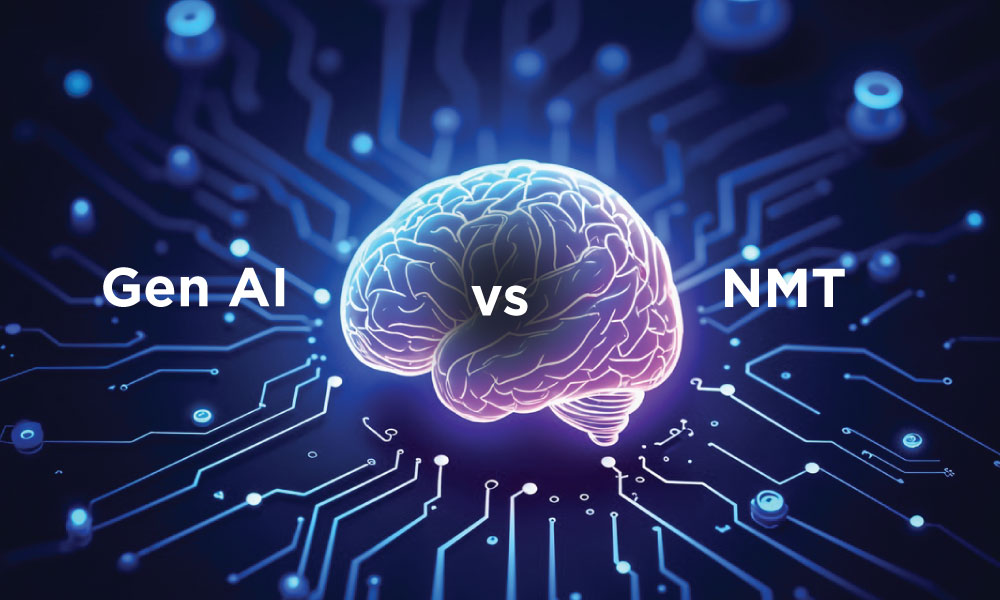In this blog, we will be understanding what is machine learning as a service. We will also have a discussion on the best MLaaS platforms.
Machine learning as a service (MLaaS) is made up of multiple cloud computing services. These services include machine learning tools. Machine learning as a service helps clients to achieve the benefits of ML. It does so without an in-house machine learning team's associated cost, time, and risk.
MLaaS can reduce infrastructure concerns. It also eliminates concerns like data pre-processing, model training, model evaluation, etc. Predictive analytics, deep learning, APIs, data visualization, NLP, etc., are also available from service providers. Data centers handle the computation part.
What is Machine Learning as a Service and How Does it Work?
MLaaS is a collection of services that provide ready-made, generic ML tools. These tools adapt to meet the needs of any organization. MLaaS algorithms are very helpful in finding data patterns. These patterns help to build mathematical models, which are then used to predict new data.
The key point is that users do not need to perform any computation. It happens remotely from providers' data centers. MLaaS is a full-stack AI platform that unifies multiple systems. These systems are such as mobile applications, enterprise information, and advanced sensors such as LiDar.
MLaaS enables pattern recognition with probabilistic reasoning. This also provides a thorough and sound ML solution. It also has the flexibility of using different methods to create customized workflows tailored to the user's needs.
MLaaS tools are available from a variety of cloud providers, including Microsoft, Amazon, and IBM.
Data Management Advantages of MLaaS Platforms
Businesses are migrating their data from on-premise storage to cloud storage systems. This arises the need to organize this data. MLaaS platforms provide cloud storage. They also provide ways to manage data for ML experiments and data pipelining. Thus, they make it easier for data engineers to access and process data.
ML Tool Access
Predictive analytics and data visualization are the tools available from MLaaS providers to businesses. They also provide APIs for sentiment analysis, face recognition, and other applications.
The actual computations of these operations abstract MLaaS providers. Thus, data scientists also don't have to worry about them. Some of the MLaaS vendors also offer a drag-and-drop interface. This drag-and-drop interface also helps with ML experimentation and model construction.
Ease of Use
MLaaS enables data scientists to get started with ML without any time-consuming processes. They also don't have to provide their own servers. The provider's data centers handle the actual computation with MLaaS. This also makes it convenient for businesses at every turn.
Cost-Effectiveness
Putting together an ML workstation is an expensive effort. The GPU required to run the ML station has a very high cost. Also, the chipset requires a significant amount of power to function. This also causes a surge in the electricity bill.
Also, you only have to pay for the hardware when it is actually used. This is very useful during the development phase. These and other solutions are available via MLaaS platforms.
Best MLaaS Platforms
ML from Amazon
Amazon ML is the best option if you need an automated solution. Amazon ML is an excellent choice for time-sensitive tasks. It can load data from different sources and perform all data preprocessing operations. You can create a model that generates predictions for your application.
You don't need to write a code or manage infrastructure by using visualization tools and wizards. This platform does not support unsupervised learning methods. You must select a target variable to label it in a training set. Amazon ML selects the learning method automatically after reviewing the data.
Microsoft Azure Machine Learning Studio
Azure ML Studio, with its drag-and-drop interface, might be the best option for you. Almost all ML operations can be carried out via a graphical user interface. If you are getting started with ML, ML Studio is an excellent choice for introducing ML capabilities to unfamiliar employees.
Google Cloud AutoML
Google Cloud AutoML provides a GUI. It is helpful in uploading datasets, training custom models, and deploying them via the REST API interface. Cloud AutoML helps developers with limited ML knowledge and expertise. It helps them train high-quality models tailored to their business requirements. AutoML also provides Image and video processing, NLP, & translation engine services.
Microsoft Azure Machine Learning Services
Azure Machine Learning Services is Microsoft's cloud infrastructure. It helps in building, experimenting, and deploying models at scale. It functions with any tool or framework, including TensorFlow. The Azure ML Services platform provides an environment for various functions. It is also helpful for professional AI devs and data scientists proficient with Python.
Models help in production by using a third-party service such as Docker. There are no built-in methods, as opposed to Microsoft's ML Studio. So, custom model engineering is a must. Also for developing bots, Azure ML offers a complete environment. It helps to develop, test, and deploy bots using various programming languages.
Amazon SageMaker
Sagemaker is Amazon's MLaaS platform for ML professionals. It gives data scientists tools to help them build and deploy models faster. This platform comes with a slew of pre-trained ML models and integrated ML algorithms.
Its built-in algorithms are also ideal for large amounts of computations and datasets.
Its chatbot AI enables you to incorporate conversational interfaces into any application. It utilizes advanced deep learning techniques of ASR. Amazon ML also enables you to delve into dataset preparation and modeling.
Google Cloud Machine Learning Engine
Google Cloud Machine Learning Engine aims at ML experts and experienced engineers. It makes use of TensorFlow and cloud infrastructure. TensorFlow is ideal for deep neural network tasks. Google Cloud ML includes a large number of pre-built algorithms.
It has a set of building block components for image/video analysis, language, and sentiment analysis. It also has a JupyterLaB integrated enterprise notebook service for ML framework management.
Preconfigured virtual machines and deep learning containers are also included. These also help for rapid application development and hosting models as hosted prediction engines. Google offers Dialog Flow, which is a linguistic and visual bot-building platform. It helps to create bots that design/integrate a conversational user interface into various systems. This tool can analyze a variety of inputs, including text and audio data.
Watson Machine Learning Studio by IBM
IBM Watson Machine Learning Studio is for both experienced data scientists and newcomers. It helps them collaborate on the development of ML applications. Data scientists can use this platform to develop analytical models. They can also train the model with their data while integrating it into applications.
Business-level analysts may struggle with its user interface. Watson ML Studio offers an automated data processing and model building interface. It requires little to no training to process data, prepare models, and deploy them into production.
Conclusion
It is critical to first determine what you want to achieve with ML. You can then select one of the mentioned options that best meet your requirements. It is also important to choose the same provider for your storage as you do for your MLaaS platform. This will also help you save time configuring data sources.
When you derive ML workflow from different sources, complications arise. But, before making a choice, keep in mind that some of these platforms can integrate with storage from other vendors. Example: Azure supports Hadoop besides its own storage products. Whereas MLaaS platforms have some significant disadvantages to consider. It all comes down to your requirements to choose the best MLaaS Platform.
You may also like to read:
What Is AI As A Service: Some Advantages, Challenges And Use Cases
How Machine Learning Benefits Cybersecurity: Benefits And Use Cases
AI And Neural Network In Customer-Service: Benefits And Challenges






